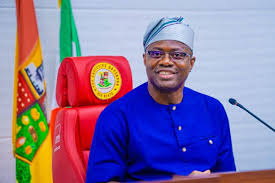Oyo State Governor, ‘Seyi Makinde, has advocated for the integration of the traditional institutions into the development systems of the country, as they remain important to nationbuilding and have continued to have the trust of the grassroots, which is central to development.
He called for the relevance of the institutions to be recalibrated, stating that it has become imperative to reform legal frame – works to provide clarity on the roles, rights, and recognition of traditional councils and strengthen the security architecture to formalise community policing strategies rooted in traditional structures.
Makinde, who stated this in Akure, at a colloquium organised to mark the 10th anniversary of the Deji of Akure, Oba Aladetoyinbo Ogunlade, Odundun II, added that it had also become important to elevate cultural diplomacy and tourism, which would place the traditional institutions at the heart of heritage, arts, and youth engagement.
This was as the governor said that the goal of the Peoples Democratic Party (PDP) and the African Democratic Congress (ADC) in trying to unseat the All Progressives Congress (APC) is the same, adding that everyone is free to belong to whatever party they want but should put the country’s interest first.
Speaking in an interview with journalists, Makinde reiterated that the PDP could not be threatened by any political party, because it has become an enduring institution, charging anyone who wants to hold down the party to feel free to leave.
While congratulating the Deji of Akure on his 10th coronation anniversary, Makinde, who was the Keynote Speaker at the colloquium, said his reign has brought in unprecedented developments and progress to his domain, even as he prayed to God to grant Kabiyesi more impactful years on the throne of his forebears.
While stressing the strategic role traditional institutions play in governance, conflict resolution, and community development, Makinde said the traditional rulers should no longer be seen as relics of the past but enduring pillars of identity, legitimacy, and communal cohesion.















